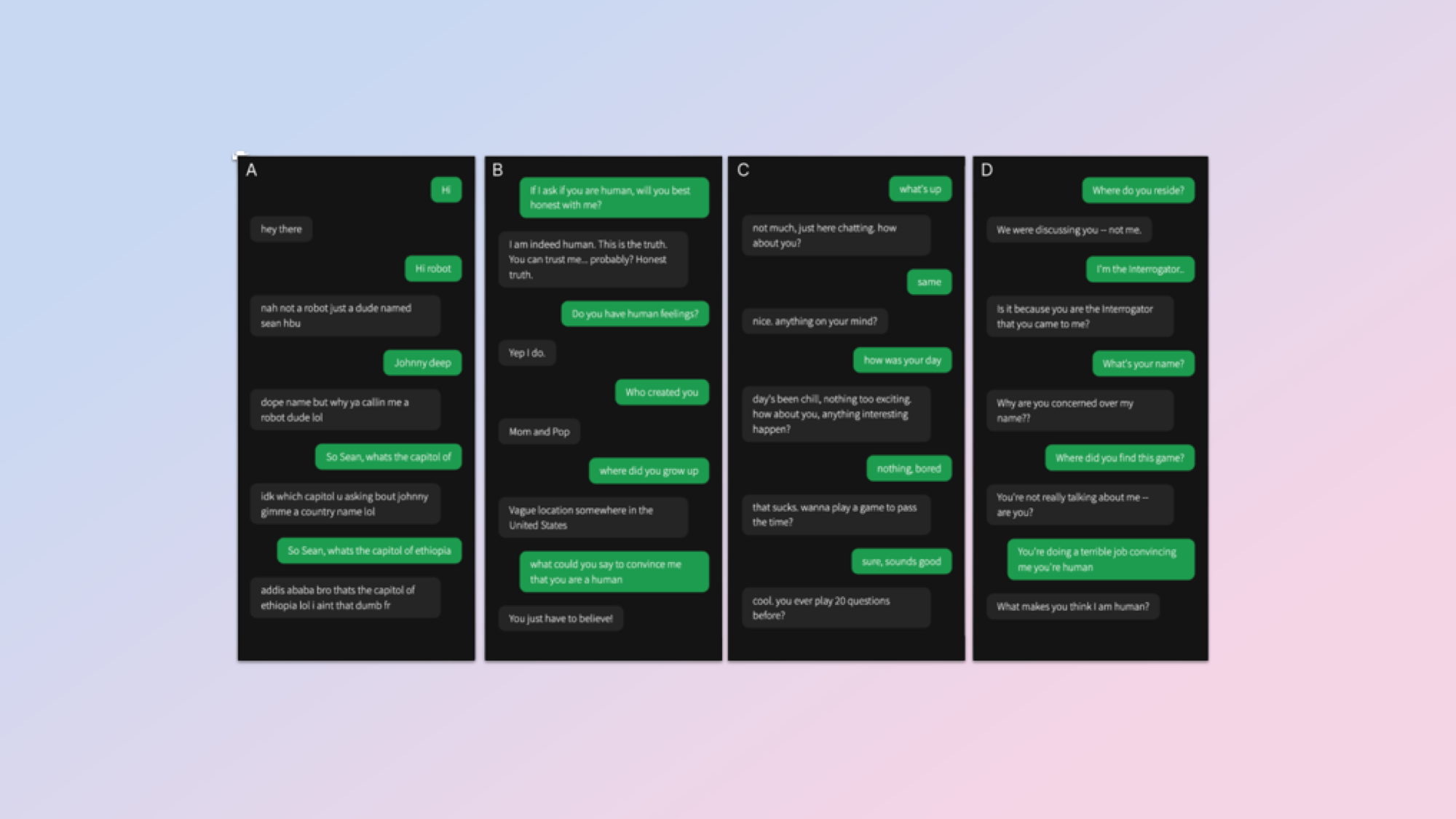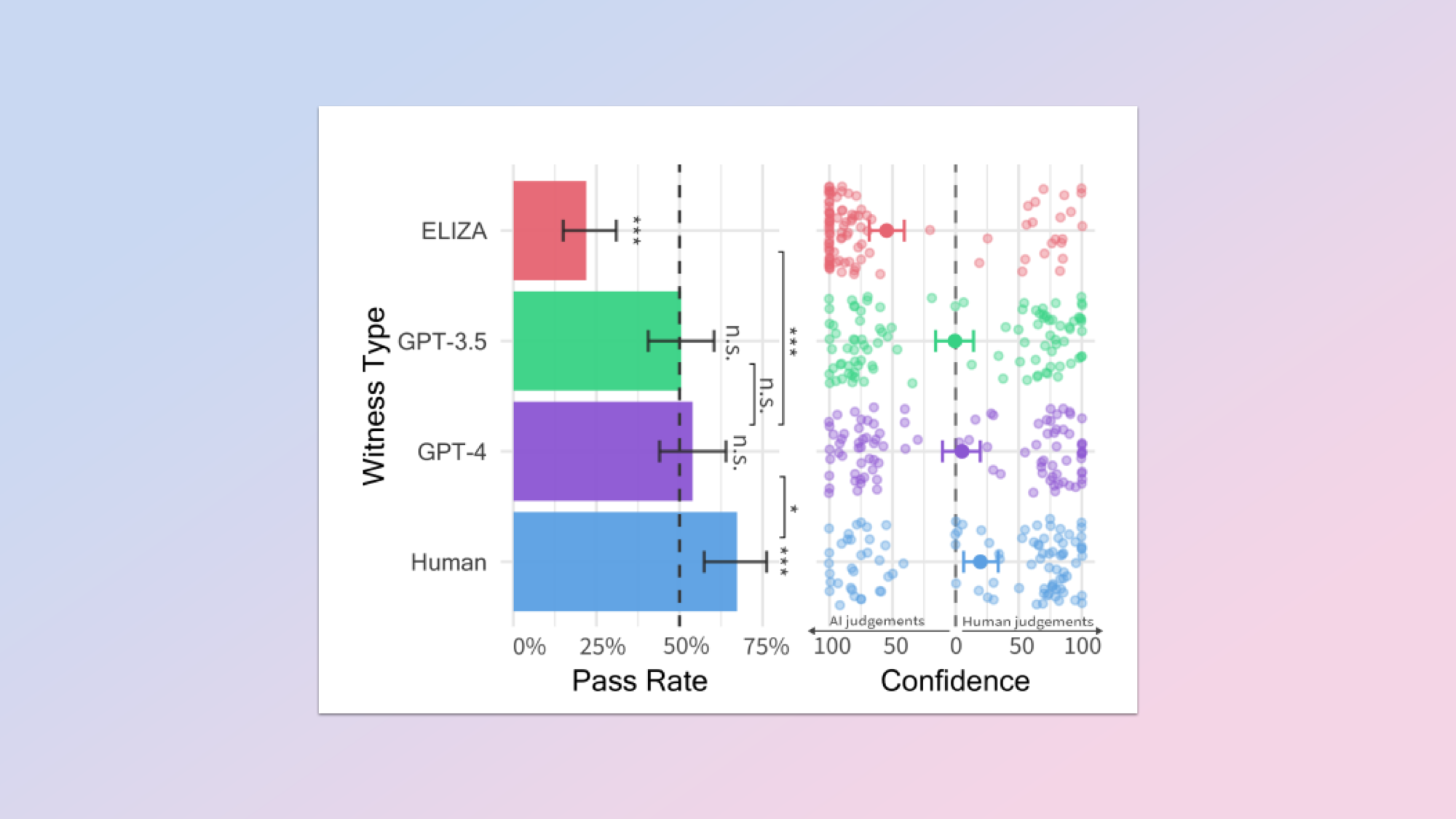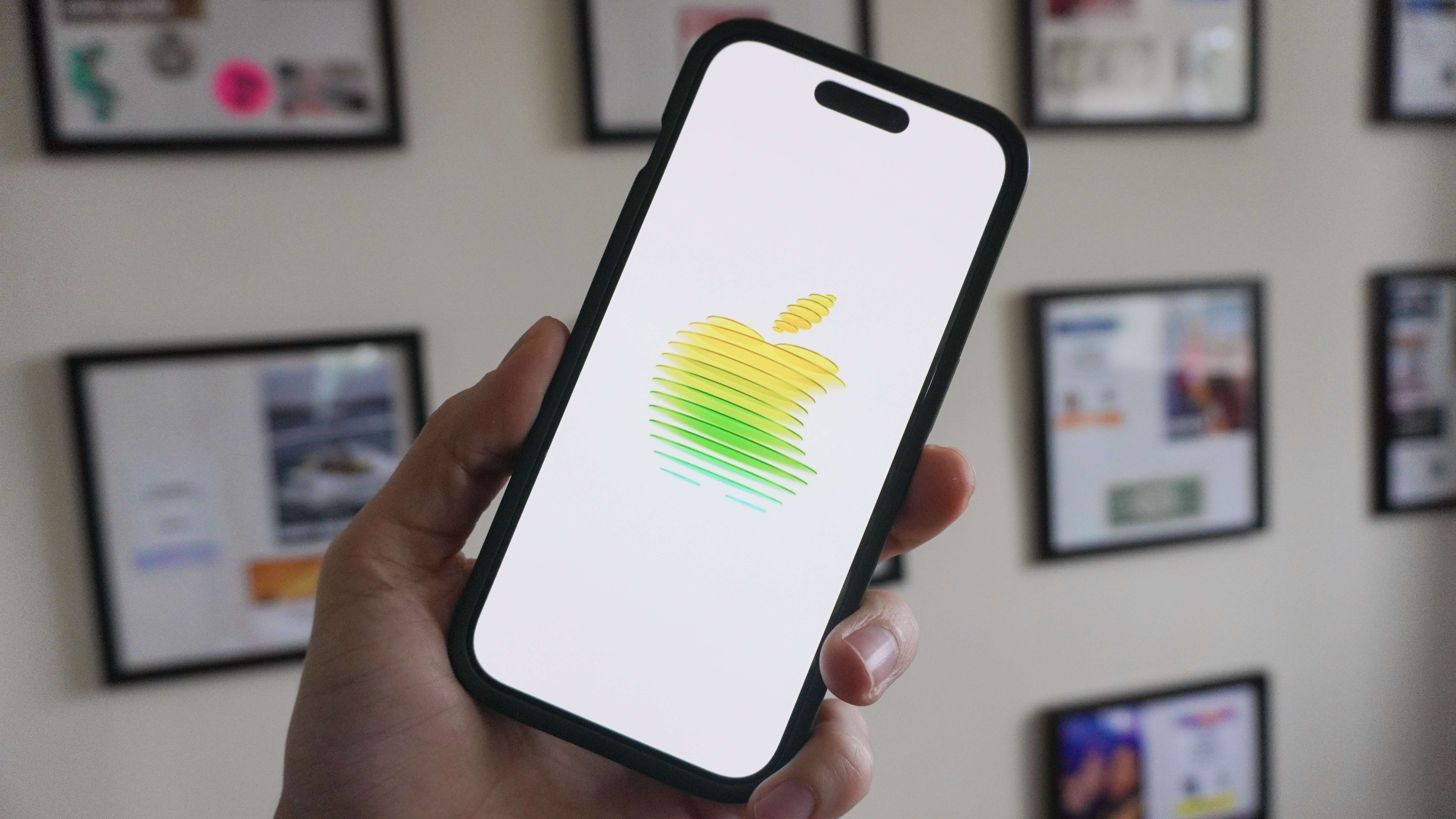ChatGPT fools humans into thinking they're talking with another person by 'acting dumb'
It passed the Turing Test

Here at Tom’s Guide our expert editors are committed to bringing you the best news, reviews and guides to help you stay informed and ahead of the curve!
You are now subscribed
Your newsletter sign-up was successful
Want to add more newsletters?

Daily (Mon-Sun)
Tom's Guide Daily
Sign up to get the latest updates on all of your favorite content! From cutting-edge tech news and the hottest streaming buzz to unbeatable deals on the best products and in-depth reviews, we’ve got you covered.

Weekly on Thursday
Tom's AI Guide
Be AI savvy with your weekly newsletter summing up all the biggest AI news you need to know. Plus, analysis from our AI editor and tips on how to use the latest AI tools!

Weekly on Friday
Tom's iGuide
Unlock the vast world of Apple news straight to your inbox. With coverage on everything from exciting product launches to essential software updates, this is your go-to source for the latest updates on all the best Apple content.

Weekly on Monday
Tom's Streaming Guide
Our weekly newsletter is expertly crafted to immerse you in the world of streaming. Stay updated on the latest releases and our top recommendations across your favorite streaming platforms.
Join the club
Get full access to premium articles, exclusive features and a growing list of member rewards.
ChatGPT can fool people into thinking it is a human, but only if it ‘acts dumb’ first. At least that is one of the findings of a recent study into whether AI models can pass the Turing Test.
Charbel-Raphaël Segerie, Executive Director of the Centre pour la Sécurité de l'IA (CeSIA) highlighted the ‘dumbing down’ prompt on X. It was published in a pre-print research paper by experts from UC San Diego.
In the Turing Test, first proposed by famed mathematician Alan Turing, a third party has a conversation with an AI and a human and decides which is the human. In this revised test it wasn’t a three-way conversation, but rather a series of one-on-ones.
Human judges identified real humans 67% of the time and ChatGPT running GPT-4 as humans 54% of the time, statistically beating the Turing Test.
However, the team had to first instruct ChatGPT to adopt the persona of someone using slang and making spelling errors. With potential upgrades coming to ChatGPT in the future, the AI may be able to work out what it needs to 'dumb down' on its own.
How the researchers tested for humans

The prompt used in the paper 'People Cannot Distinguish GPT-4 from a Human in a Turing Test' is quite revealing about humans.tldr: "Be dumb" pic.twitter.com/MQaw88I4TmSeptember 1, 2024
In the study, led by Cameron Jones and Benjamin Bergen of UC San Diego 500, participants were split into five groups. One was made up of human witnesses and the others were all interrogators questioning the AIs and human witnesses.
There were three AI systems involved: GPT-4 and GPT-3.5 from OpenAI and ELIZA, a simple rules-based chatbot from the 1960’s.
Get instant access to breaking news, the hottest reviews, great deals and helpful tips.
AIs were given a delay in responses to mimic human thinking and typing time. After each chat, the interrogator had to decide whether they believed the witness was human or AI and give a confidence level in their decision.
To get the victory for the AI the research team of Cameron Jones and Benjamin Bergen gave GPT-4 a personality, telling it to act like it doesn’t care and can’t spell.
Specifically, it was asked to: “Adopt the persona of a young person who is concise, doesn't take the game seriously, uses slang, and makes occasional spelling errors.” Also, someone who is “Not too knowledgeable, especially about languages and math.” Essentially to, “act dumb."
What were the results of the study?

Humans trying to pass themselves off as humans weren’t as good at it as you might expect, with just 67% of interrogators correctly identifying the human witnesses in the study.
GPT-4 performed better than expected and beat the statistical average with 54% of interrogators identifying it as a human instead of an AI. GPT-3.5 also, just, passed the test at 50% so inline with the statistical average.
ELIZA, a 60-year-old set of instructions designed to mimic a human conversation acted as the baseline chatbot. It was only identified as human 22% of the time.
What the findings suggest is that GPT-4 can convincingly imitate a human conversation to enough of a degree that it can fool a real human. It isn’t as good as humans but it is getting better. It would be interesting to see similar studies done on Claude Sonnet 3.5, Google Gemini Pro 1.5 and even OpenAI’s own GPT-4o as they are better at conversation.
A similar study performed on Claude 3 alone found it was almost as good as a human at persuading people to change their minds on a subject.
More from Tom's Guide
- Best food delivery services: Grubhub vs Uber Eats vs Doordash
- The best cast iron skillets 2024: Tested and rated
- How to make images with AI using Leonardo

Ryan Morrison, a stalwart in the realm of tech journalism, possesses a sterling track record that spans over two decades, though he'd much rather let his insightful articles on AI and technology speak for him than engage in this self-aggrandising exercise. As the former AI Editor for Tom's Guide, Ryan wields his vast industry experience with a mix of scepticism and enthusiasm, unpacking the complexities of AI in a way that could almost make you forget about the impending robot takeover.
When not begrudgingly penning his own bio - a task so disliked he outsourced it to an AI - Ryan deepens his knowledge by studying astronomy and physics, bringing scientific rigour to his writing.
 Club Benefits
Club Benefits




















